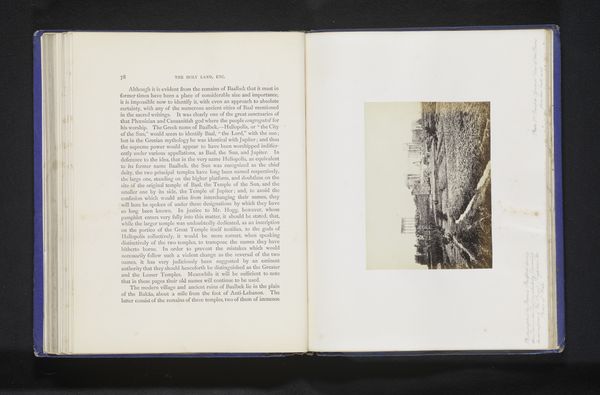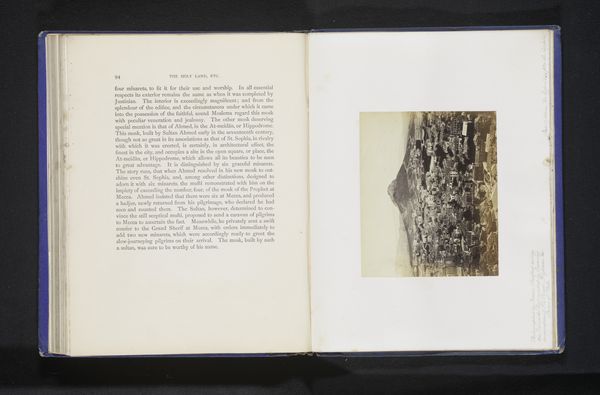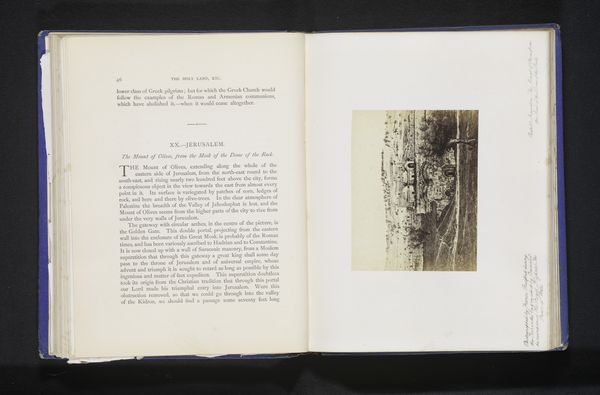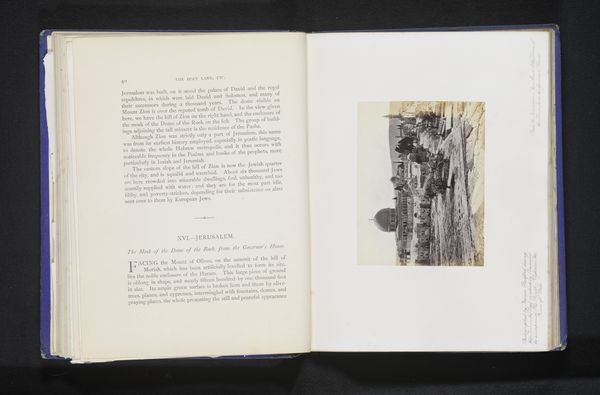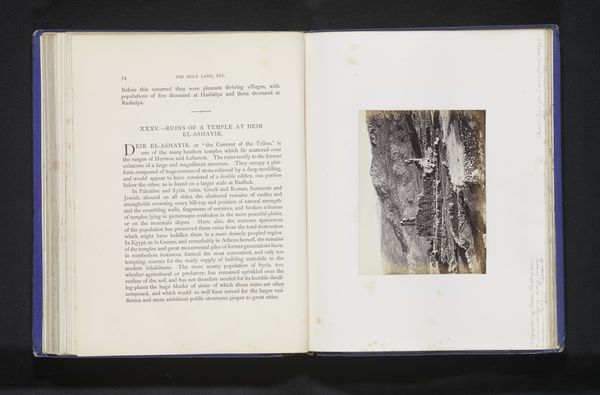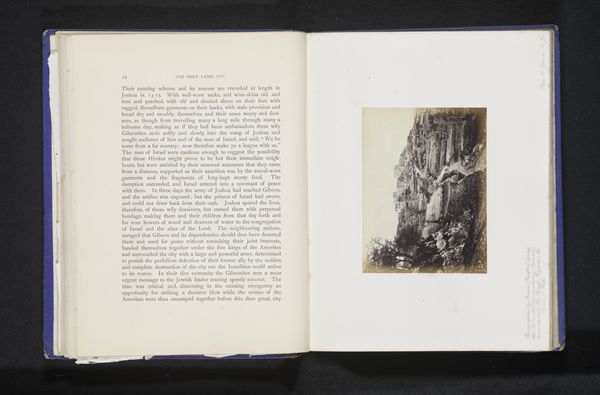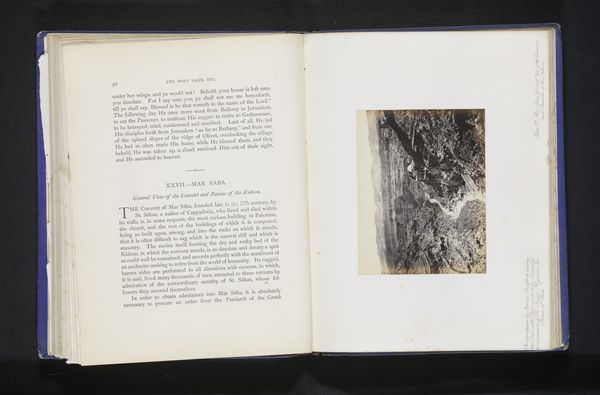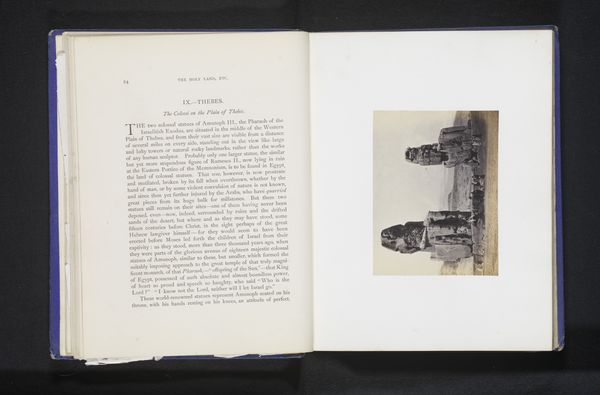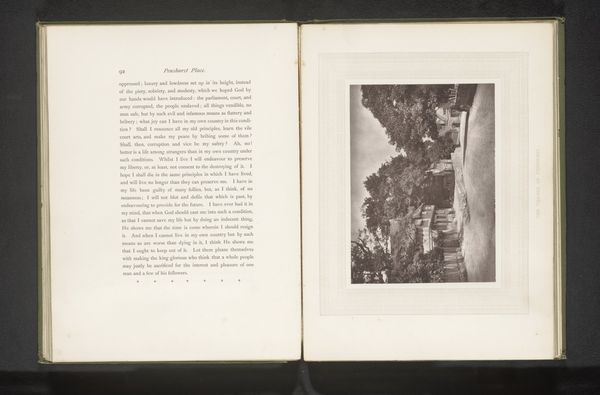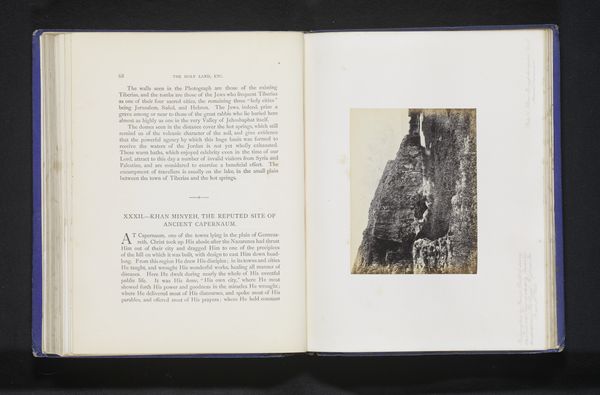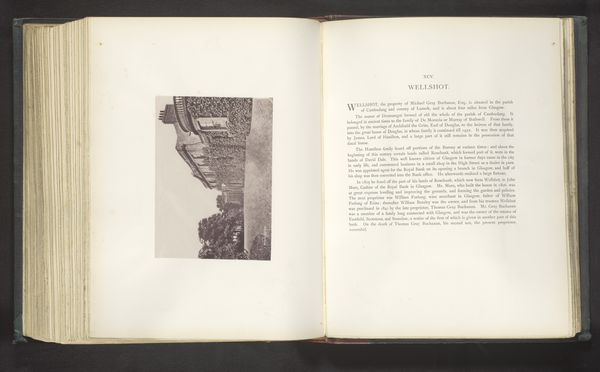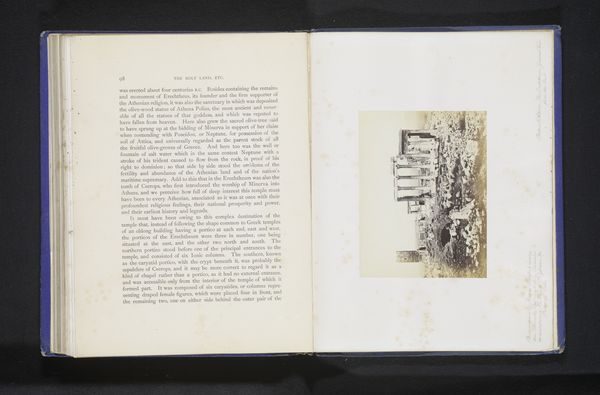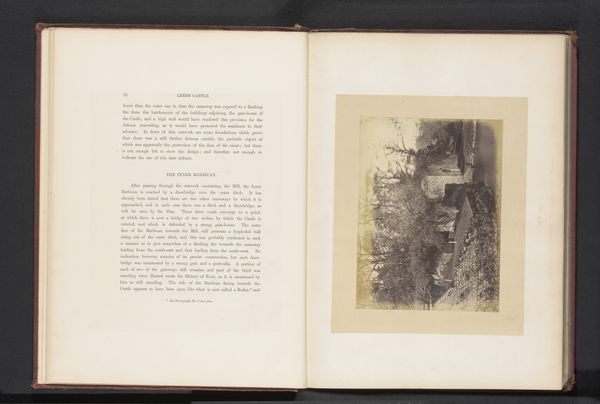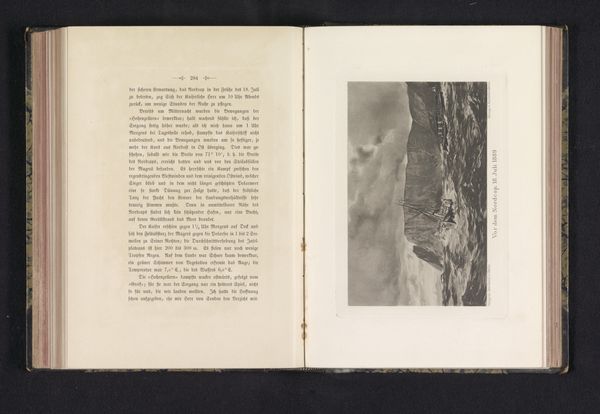
print, photography, albumen-print
# print
#
landscape
#
photography
#
albumen-print
Dimensions: height 100 mm, width 127 mm
Copyright: Rijks Museum: Open Domain
Curator: Editor: So, this albumen print, "Nablus - General View of the Town," by Francis Bedford, was made before 1866. It looks almost like a lithograph. What stands out to you? Editor: Well, the incredible detail for such an old photograph is striking, and how sharply it is displayed in what appears to be a bound book of photographs, gives a clear sense of function for the images. How would you interpret the photograph as an object? Curator: Let’s consider the production of this image. The albumen print process itself is incredibly laborious, requiring skilled technicians to prepare the paper and carefully control the exposure and development. Bedford wasn’t simply capturing a scene; he was overseeing a complex manufacturing process. What does that labor tell us about the intended audience and its perception? Editor: Perhaps, since a photographic album like this was hand-made and produced at a high cost of materials and labor, it was designed for a specific audience: the British elite. Curator: Precisely. Consider the economic and social context. Who would have the means to acquire such a luxury item in the mid-19th century? It suggests an affluent, educated audience with a taste for travel and an interest in the “Holy Land” — and the means to consume exotic images. What are your thoughts on the cultural implications, as you see it now? Editor: Thinking about the materials and who could access them helps me understand that this image of Nablus, for instance, was produced and circulated within specific power structures. It sheds light on wealth inequality at the time in both Britain and Palestine. Curator: It highlights how even seemingly straightforward landscape photography is embedded in intricate systems of production, consumption, and cultural exchange. Thank you for contributing to this discussion. Editor: Thank you. It was an illuminating exercise for me to see it in terms of its material conditions.
Comments
No comments
Be the first to comment and join the conversation on the ultimate creative platform.
